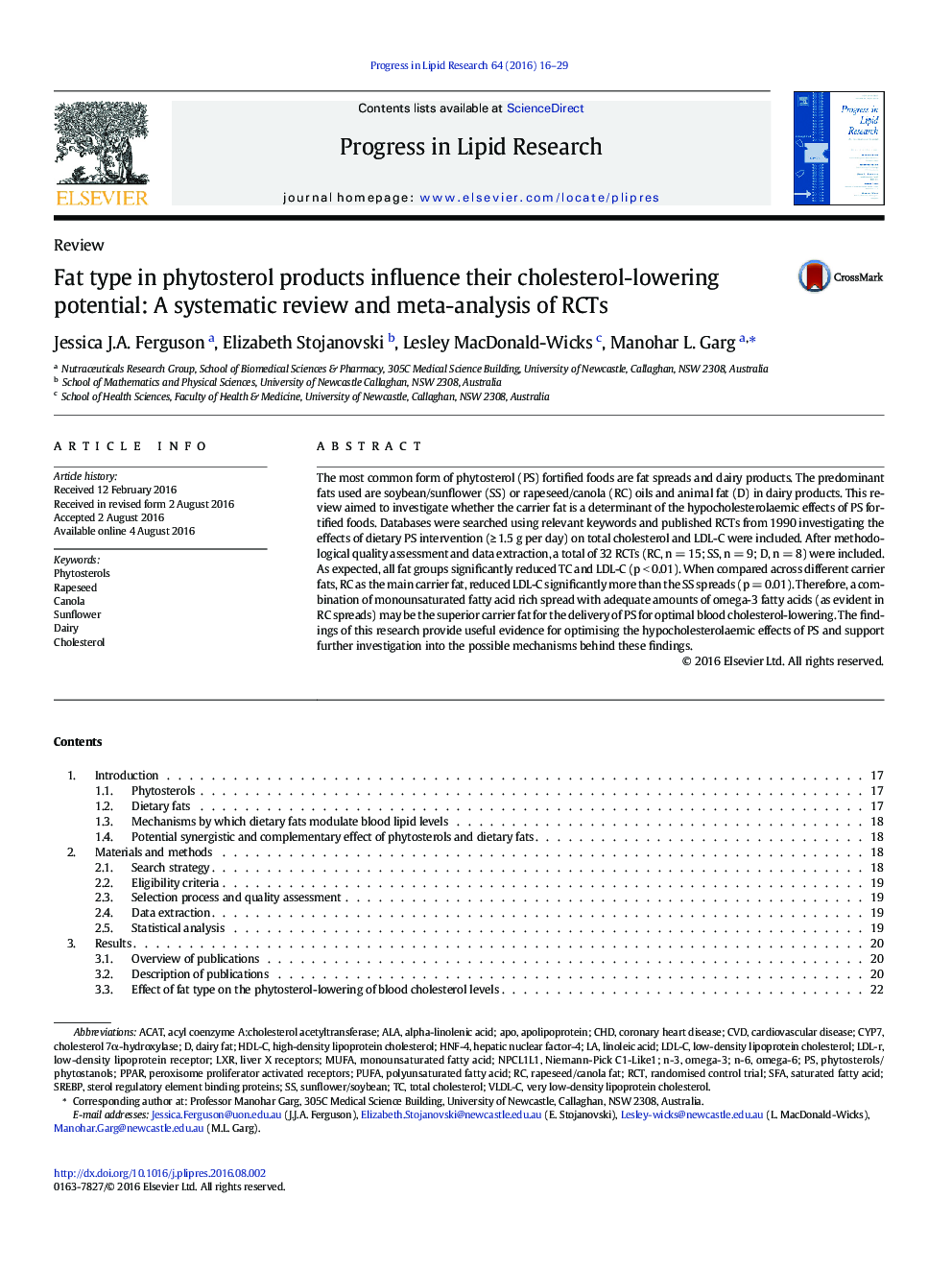| Article ID | Journal | Published Year | Pages | File Type |
|---|---|---|---|---|
| 2019078 | Progress in Lipid Research | 2016 | 14 Pages |
The most common form of phytosterol (PS) fortified foods are fat spreads and dairy products. The predominant fats used are soybean/sunflower (SS) or rapeseed/canola (RC) oils and animal fat (D) in dairy products. This review aimed to investigate whether the carrier fat is a determinant of the hypocholesterolaemic effects of PS fortified foods. Databases were searched using relevant keywords and published RCTs from 1990 investigating the effects of dietary PS intervention (≥ 1.5 g per day) on total cholesterol and LDL-C were included. After methodological quality assessment and data extraction, a total of 32 RCTs (RC, n = 15; SS, n = 9; D, n = 8) were included. As expected, all fat groups significantly reduced TC and LDL-C (p < 0.01). When compared across different carrier fats, RC as the main carrier fat, reduced LDL-C significantly more than the SS spreads (p = 0.01). Therefore, a combination of monounsaturated fatty acid rich spread with adequate amounts of omega-3 fatty acids (as evident in RC spreads) may be the superior carrier fat for the delivery of PS for optimal blood cholesterol-lowering. The findings of this research provide useful evidence for optimising the hypocholesterolaemic effects of PS and support further investigation into the possible mechanisms behind these findings.
